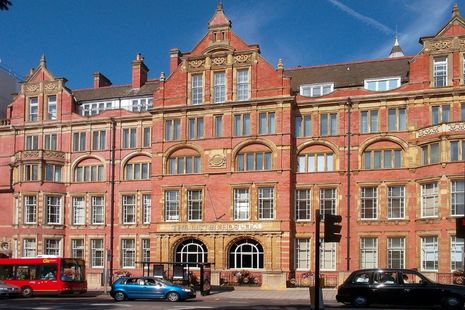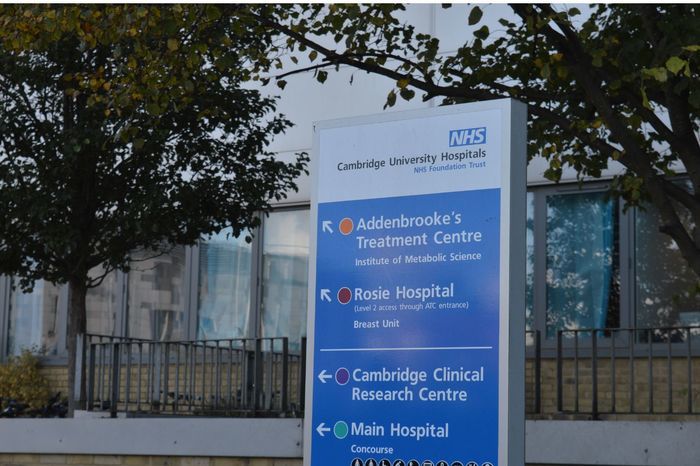Cambridge professor denies falsifying test results in £1 million NHS claim
The lawyer acting for the NHS accused Dr Hakmi of ‘deliberately underperforming’ in IQ and memory tests

A University of Cambridge professor has rejected suggestions that he deliberately underperformed on IQ and memory tests in an effort to support a claim against the NHS.
Dr Mohamed Atef Hakmi, former orthopaedic surgeon and affiliated assistant professor at the University of Cambridge’s School of Medicine, had to give up surgery after he suffered a stroke in 2016 and was left disabled.
After suffering a first stroke in September 2016, Hakmi was given thrombolysis treatment, and recovered quickly, performing surgery again just a few weeks later.
He then suffered a second stroke in November 2016. Hakmi’s barrister, Robert Kellar KC, told the court that, while suffering this stroke, Hakmi was for several hours denied thrombolysis treatment by the Lister Hospital in Stevenage. Kellar suggested that this delayed treatment may have resulted in Hakmi suffering brain damage and becoming permanently physically disabled.
Hakmi reportedly told medical professionals he believed he was having a stroke, but an A&E doctor and an NHS remote stroke treatment specialist both rejected this. The remote specialist reportedly suggested that Hakmi could be suffering from a migraine or epilepsy.
Having arrived at A&E in the early hours of the morning, it was not until 09:00 that Hakmi’s stroke was diagnosed. By this time, it was reportedly too late for him to receive thrombolysis treatment.
Hakmi is accusing the NHS of “cumulative and inter-related” failings, including a “cursory and sub-standard examination”.
Hakmi’s physical impairments include limp and reduced sensation in his fingers and toes, fatigue in his right arm, hand and grip, which limits his ability to perform tasks for long durations.
The brain damage Hakmi and his team allege amounts to short-term memory impairment, impaired concentration, reduced processing speed and “executive deficits”.
“His confidence is low, and he is experiencing significant depressive symptoms due to physical, cognitive, speech, and language issues resulting from his second stroke, which are negatively affecting important aspects of his life,” Kellar said.
Kellar continued: “He no longer does any surgery. But for the breach of duty, the claimant is likely to have made a good recovery. He would have been able to return to all types of surgery that did not require a high degree of manual dexterity.”
Acting for the NHS, John de Bono KC denies Hakmi is due a payout, accusing him of exaggerating his symptoms at pre-trial expert assessments.
Beyond the “very bad” IQ test score of 84, which put him below 86% of the population, Hakmi scored very low in memory tests as well.
Despite continuing to teach medicine students at Cambridge, Hakmi was reportedly unable to recall more than four single digit numbers in a row in one memory test. Some of his test results placed him in the bottom 1% of the population.
Commenting on Hakmi’s test results, de Bono said: “That’s very bad - it suggests it would be hard to function as a surgeon or as an educator at that level.” De Bono described his test scores as “very surprising” and sometimes “astonishing,” raising a “serious concern about whether he was putting forward his best effort” when being assessed.
“I understand that you feel the reason you have suffered as badly as you have is because of mistakes or negligence. I understand it must make you angry,” de Bono continued.
However, de Bono suggested that Hakmi’s “sense of injustice” may have led him to deliberately seek low scores on the tests.
“One possibility which I put to you is that you were deliberately underperforming,” de Bono stated in court.
Hakmi denied overplaying his symptoms for the medical professionals assessing him, telling the court he had found the tests “exhausting”.
“I definitely have a memory problem, slow effort. I have done everything to mitigate my losses. I know definitely I’m not as before I had the stroke,” Hakmi responded.
De Bono argued in front of the court: “There is a pattern emerging. In any given situation, you will try and say whatever you think is going to help you most to achieve whatever your aim is.”
Hakmi declared: “I have been straightforward in everything in my life. I have aimed to be a surgeon again, but I have failed.”
The damages claim is against the East and North Hertfordshire NHS Trust, which runs the Lister Hospital, and the Norfolk and Norwich University Hospital NHS Foundation Trust, where the remote stroke doctor who spoke to Hakmi was based.
Both trusts say Hakmi was “at all times treated with reasonable care and skill by highly competent clinicians”. They argue his symptoms were not severe enough, and that too much time had elapsed since their onset for Hakmi to be given thrombolysis treatment.
A spokesperson from Slater and Gordon, the law firm representing Dr Hakmi, said: “Dr. Hakmi has spent his career caring for others, yet it is his case that when he suffered a stroke he was let down by failings on the part of the NHS Trusts responsible for his assessment and care. Dr Hakmi strongly denies any suggestion of dishonesty. It is not appropriate for him to comment further whilst the legal proceedings are ongoing.”
 News / Cambridge students accused of ‘gleeful’ racist hate crime4 December 2025
News / Cambridge students accused of ‘gleeful’ racist hate crime4 December 2025 News / Churchill announces June Event in place of May Ball3 December 2025
News / Churchill announces June Event in place of May Ball3 December 2025 News / Uni redundancy consultation ‘falls short of legal duties’, unions say6 December 2025
News / Uni redundancy consultation ‘falls short of legal duties’, unions say6 December 2025 News / Cambridge cosies up to Reform UK30 November 2025
News / Cambridge cosies up to Reform UK30 November 2025 Comment / Don’t get lost in the Bermuda Triangle of job hunting 24 November 2025
Comment / Don’t get lost in the Bermuda Triangle of job hunting 24 November 2025









